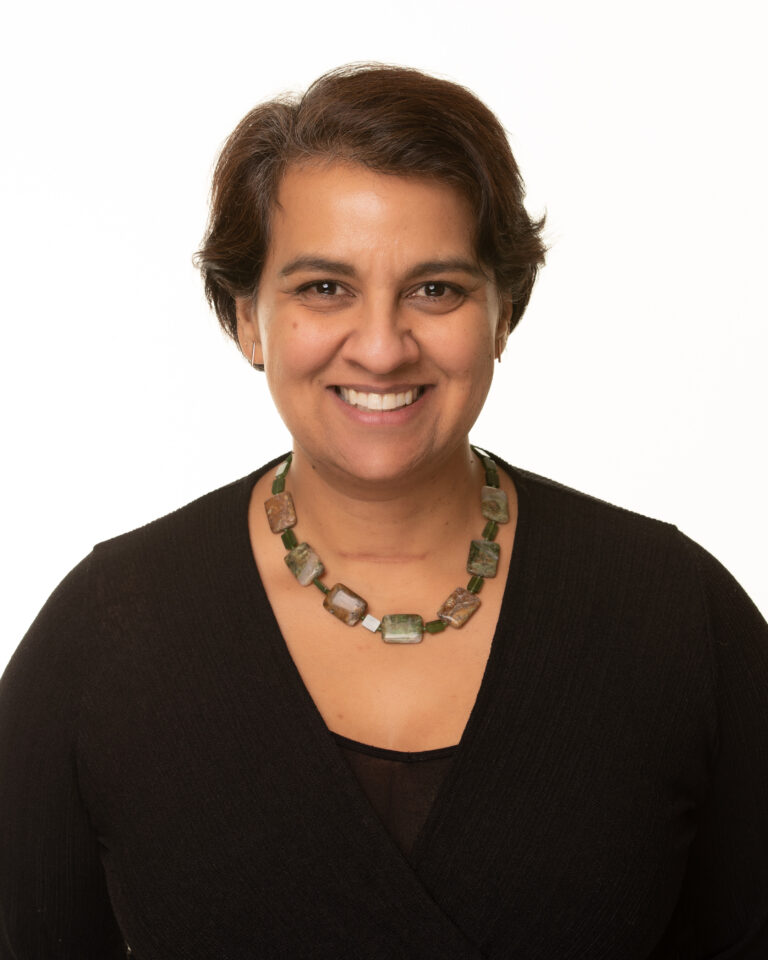Message from the Centre for Simulation-Based Learning Director of Scholarship
The Centre for Simulation-Based Learning connects clinician educators, scholars and scientists interested in four areas of simulation-based research:
- Education
- Assessment
- Innovation
- Systems/safety quality improvement.
To inspire innovation and collaboration, we leveraged our partnership with the McMaster Education Research, Innovation and Theory program (MERIT), to invite international simulation experts for quarterly simulation rounds.
To build capacity in education scholarship, the CSBL collaborates with the Clinician Educator Program and MERIT to host a discussion group, called Insight U. This group was initially formed in 2018 and interrupted during the Covid-19 pandemic. Currently, we are revamping a new format of Insight U.
The CSBL community of scholars continues to translate theory to current education practices through empirical studies, curriculum design and commentaries.
Sandra Monteiro, CSBL director of scholarship

Director of Simulation Scholarship
Expandable List
*Note: The names of Centre for Simulation-Based Learning faculty are bolded.
Sibbald M, Monteiro S, Sherbino J, et al. Should electronic differential diagnosis support be used early or late in the diagnostic process? A multicentre experimental study of Isabel. BMJ Quality & Safety. Oct 1, 2021.
Uzelli Yilmaz D, Azim A, Sibbald M. The Role of Equity, Diversity, and Inclusivity in Standardized Patient Programs: A Narrative Review. Academic Medicine: Journal of the Association of American Medical Colleges. Oct 5, 2021.
Sibbald M, Pinilla-Echeverri N, Alameer M, et. al. Using Optical Coherence Tomography to Identify Lipid and Its Impact on Interventions and Clinical Events: A Scoping Review. Circulation Journal. 2021 Oct 25;85(11): 2053-2062. Oct 25, 2021.
Foohey S, Nagji A, Yilmaz Y, et al. Developing the Virtual Resus Room: Fidelity, Usability, Acceptability, and Applicability of a Virtual Simulation for Teaching and Learning. Academic Medicine: Journal of the Association of American Medical Colleges. Aug 10, 2021.
Logiudice A, Sibbald M, Monteiro S. The unexplored value of “Normal”: A commentary on the lack of normal cases in high-stakes assessment. Medical Education. 2021 June 26;9(1):136-139. Jun 26, 2021.Hui M, Mansoor M, and Sibbald M. Are simulation learning objectives educationally sound? A single-center cross-sectional study. Simul Healthc. 2021 Apr 1;16(2):105-113. Apr 1, 2021.
Nadarajah S, Azim A, Uzelli D, Yilmaz Y, and Sibbald M. Talking the talk in junior interprofessional education: is healthcare terminology a barrier or facilitator? BMC Med. Educ. 2021 March 22;21(1):177. Mar 22, 2021.
Watsjold B, Ilgen J, Monteiro S, Sibbald M, et. al. Do you hear what you see? Utilizing phonocardiography to enhance proficiency in cardiac auscultation. Perspect. Med. Educ. Jan 12, 2021.
LoGuidice A, Sherbino J, Norman G, Monteiro S, and Sibbald M. Intuitive and deliberative approaches for diagnosing ‘well vs. unwell’: Evidence from eye-tracking, and potential implications for training. Adv Health Sci Educ Theory Pract. Jan 10, 2021.
Miles A, Ginsburg S, Sibbald M, et. al. Feedback from health professionals in postgraduate medical education: influence of interprofessional relationship, identity and power. Med. Educ. Dec 1, 2020.
Tavares W, Rowland P, Dagnone D, McEwen LA, Billett S, and Sibbald M. Translating outcome frameworks to assessment programmes: Implications for validity. Med. Educ. 2020 July 2:54(10); 932-942. Jul 2, 2020.
Martin L, and Sibbald M. Barking up the same tree? Lessons from workplace?based assessment and digital badges. Med Educ. 2020 April 16;54(7):593-595. Apr 16, 2020.
Martin L, Sibbald M, Brandt Vegas D, Russell D, and Govaerts M. The impact of entrustment assessments on feedback and learning: Trainee perspectives. Med Educ. 2020 Apr;54(4):328-336. Apr 2020.
Monteiro S, Sibbald M. Aha! Taking on the myth that simulation-derived surprise enhances learning. Medical Education. 2020 Apr 20.
Monteiro S, Norman G, Grierson L & Sibbald M. Learning to transfer in simulation, invited chapter for “2nd edition of Clinical Simulation”. Chiniara G, Ed. Clinical Simulation: Education, Operations and Engineering. Academic Press; 2019 Aug 30.
Sandra Monteiro, Matthew Sibbald. Choosing wisely – Clinician educators’ guide to high-value simulation-based education. Medical Education. 23 Dec 2020;8(2): 302-305. Dec 23, 2020.
*Note: The names of Centre for Simulation-Based Learning faculty are bolded.
Monteiro, S., Norman, G., Sibbald, M., and Grierson, L. (2019), Chapter 6 ‘Adapting Learning in a Simulated Environment,’ in Chiniara G (Ed), Clinical Simulation Education, Operations, and Engineering, Second Edition, Academic Press, Elsevier, London, UK., San Diego, CA., Cambridge, MA., and Oxford, UK. Conner M (Publisher), pp 67-80.
Grierson, L., Norman, G., Monteiro, S., and Sibbald, M. (2019), Chapter 9 ‘Simulation-Based Education and the Challenge of Transfer,’ in Chiniara G (Ed), Clinical Simulation Education, Operations, and Engineering, Second Edition, Academic Press, Elsevier, London, UK., San Diego, CA., Cambridge, MA., and Oxford, UK. Conner M (Publisher), pp 115-127.
Naismith, LM., Cheung, J., Sibbald, M., Tavares, W., Cavalcanti, RB., Haji, FA., and Fraser, KL. (2019), Chapter 10, ‘Using Cognitive Load Theory to Optimize Simulation Design,’ in Chiniara G (Ed), Clinical Simulation Education, Operations, and Engineering, Second Edition, Academic Press, Elsevier, London, UK., San Diego, CA., Cambridge, MA., and Oxford, UK. Conner M (Publisher), pp 129-141.

